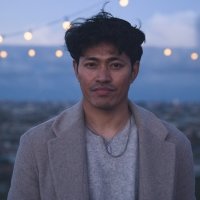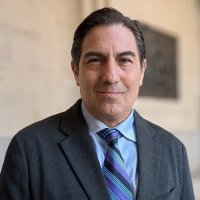Why State Ownership Matters for Resource Governance
Submit a question
As the world moves towards decarbonization, the push for clean energy technologies has quickly brought attention to a key set of players: states in the global south that are rich in the transition minerals, like cobalt, lithium, and copper, that are essential to renewable energy technologies. In the face of ballooning demand, how might mineral states respond?
In his new book, Business of the State: Why State Ownership Matters for Resource Governance, Dr. Jojo Nem Singh explores what effective growth strategies might look like for these states, shifting away from extractivism as a growth model and instead harnessing the development potential of their resources amid strategic competition. Drawing from the experiences of Brazil's Petrobras and Chile's Codelco, the book shares how state-owned enterprises (SOEs)—if paired with governance reforms and aligned with the private sector—could open new pathways for development.
In exploring a roadmap for mineral states, Business of the State asks fundamental questions about states and markets: Why do states seek to intervene in the affairs of public enterprises? And what role might they play in structural transformation?
About the Speakers
Jewellord (Jojo) Nem Singh is a Global Fellow at the Wilson Center’s Environmental Change and Security Program and an Assistant Professor of International Development at the International Institute of Social Studies, part of the Erasmus University Rotterdam, the Netherlands. He is the Principal Investigator of a European Research Council (ERC) Starting Grant for a five-year research project titled Green Industrial Policy in the Age of Rare Metals: A Trans-regional Comparison of Growth Strategies in Rare Earths Mining (GRIP-ARM). Jojo has also worked as a consultant with UNDP Brussels, UNRISD in Geneva, and Publish What You Pay in London. In July, Jojo published Business of the State: Why State Ownership Matters for Resource Governance.
Diego von Vacano is a Fellow with the Wilson Center’s Environmental Change and Security Program and Latin America Program, and a Professor of Political Science at Texas A&M University’s Bush School of Government and Public Service. His research focuses on the geopolitics and ethics of lithium in Latin America for emerging energy sectors. Diego is currently working on a book on Bolivia's lithium resources and the politics around their development titled Power over Energy: Lithium, Bolivia, and the Global Struggle for the New Green Economy, which is partially based on his personal experience as an advisor to President Luis Arce of Bolivia between 2019 and 2022. Originally from Bolivia, Diego came to the US as a political refugee. He received his Ph.D. from Princeton University and MPP from Harvard's Kennedy School.
Speakers

Principal Research Fellow, University of Sussex, UK

Professor, Bush School of Government and Public Service, Department of Political Science, Texas A&M University
Moderator

Hosted By

Environmental Change and Security Program
The Environmental Change and Security Program (ECSP) explores the connections between environmental change, health, and population dynamics and their links to conflict, human insecurity, and foreign policy. Read more


Latin America Program
The Wilson Center’s prestigious Latin America Program provides non-partisan expertise to a broad community of decision makers in the United States and Latin America on critical policy issues facing the Hemisphere. The Program provides insightful and actionable research for policymakers, private sector leaders, journalists, and public intellectuals in the United States and Latin America. To bridge the gap between scholarship and policy action, it fosters new inquiry, sponsors high-level public and private meetings among multiple stakeholders, and explores policy options to improve outcomes for citizens throughout the Americas. Drawing on the Wilson Center’s strength as the nation’s key non-partisan policy forum, the Program serves as a trusted source of analysis and a vital point of contact between the worlds of scholarship and action. Read more


